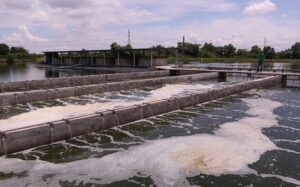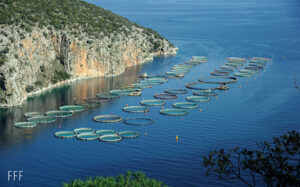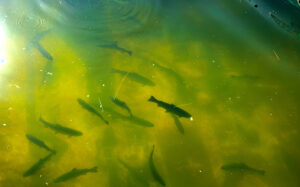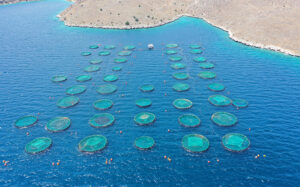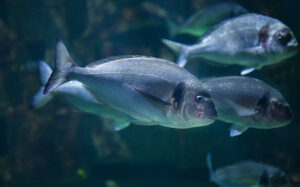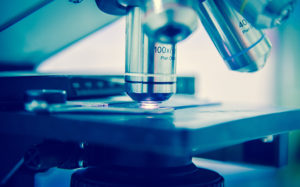SEA BASS & SEA BREAM
US-born aquaculture system has the potential to transform Thai fish farming
An innovative system initially designed to help US catfish farmers is offering a lifeline to fish producers across Southeast Asia who are facing increased pressure to farm more sustainably.
Mediterranean heatwaves putting farmed finfish under strain
The welfare of farmed seabream and sea bass in the Mediterranean is threatened by marine heatwaves, which are becoming increasingly frequent in the region.
How acoustic technologies are aiding fish health and welfare
Monitoring fish using sound is on the rise in aquaculture, meeting a need to accurately assess the health and welfare of farmed-fish populations in changing environments.
Data and feed helping tackle some of Europe’s prevalent fish-health threats
A Europe-wide project is helping establish new approaches to tackle economically important parasites and pathogens, both in the Mediterranean and Norway.
New approach could improve understanding of farmed seabream welfare
Analyzing proteins from the skin mucus of gilthead seabream (Sparus aurata) could offer a promising, welfare-friendly route to monitor stress levels of the fish during production cycles.
Helping Mediterranean fish farmers quickly identify disease issues
An interview with Emre Berke, DVM, PhD, field technical support associate for PHARMAQ.
Revealing farmed sea bream’s diverse microbiome could aid health improvements
The microbiome of gilthead seabream farmed in the Mediterranean appears to be very distinct from that of their surrounding environment — offering new insight which may help in managing health issues associated with the species.
Diversity of sea bass pathogen strains highlights challenge in Mediterranean aquaculture
A new study analyzing three strains of the bacterium Vibrio harveyi found among farmed sea bass in the Mediterranean has underlined the diversity of the pathogen, which poses a severe threat to the region’s aquaculture.


